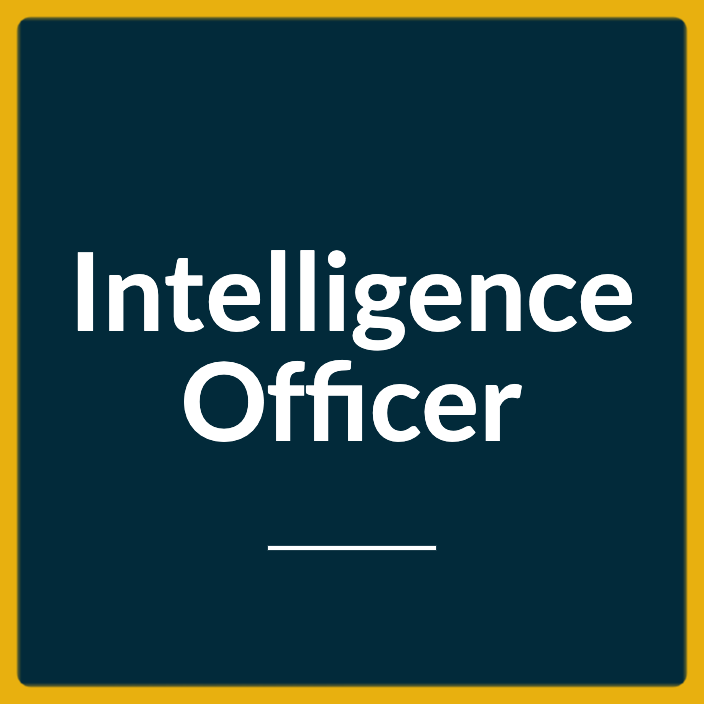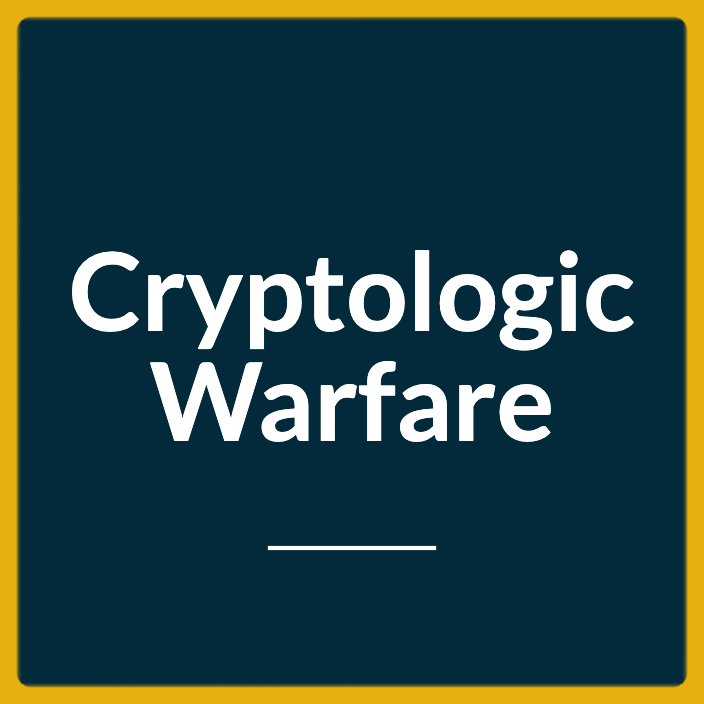Last Updated on March 4, 2024
This guide provides information about the Fiscal Year 2024 Navy Officer programs within the Navy Information Warfare community.
Information Warfare Officers are Restricted Line Officers in the Navy who conduct psychological operations, manage the application of cryptanalysis and cryptography, and advise decision makers from the tactical level to the national level.
These advanced information warfare activities contribute to our nation’s ability to exploit our adversaries’ information weaknesses.
As you will see, Navy Information Warfare involves many aspects of specialized high technological warfare.
We will discuss details about this community.
Let us jump right in.
Navy Information Warfare Community
The Navy’s Information Warfare Community (IWC) was established in 2009 to integrate the Navy’s information-related capabilities, which are as follows:
- Networks
- Communications
- Intelligence
- Electronic Warfare
- Oceanography
- Meteorology
- Cyberspace Operations
- Cryptology
- Space
These information-related capabilities are crucial to degrade, deny, deceive, or destroy an adversary’s information environment or to increase the effectiveness of friendly operations.
The IWC’s purpose is to defeat any adversary by achieving Freedom of Maneuver throughout all warfighting domains via the use of Battlespace Awareness, Assured Command and Control, and Integrated Fires.
We must comprehend how our opponents think and operate, construct the battlespace, and give fast and reliable intelligence to our soldiers.
The Navy’s Officers, Sailors, and Civilians have a long and illustrious tradition of waging information warfare in order to successfully prevent and battle threats to our country.
The IWC enables 3 critical capabilities: Battlespace Awareness, Assured Command and Control, and Integrated Fires. These capabilities are critical for All Domain Access and the Electromagnetic Warfare concept.
IWC is made up of subject matter specialists from the Navy’s cyberspace, space, and electromagnetic spectrum programs.
The IWC officers are skilled in planning, integrating, and executing information-related capabilities and activities in order to achieve synergistic impacts across all domains.
Information Warfare Officers
Information Warfare Officers (IWOs) play a critical role in executing the complete spectrum of cryptology, cyber intelligence, and signals intelligence; computer network operations; information operations; and electronic warfare missions in the electromagnetic, cyber, and space domains.
The IWO’s mission is to discourage and defeat aggression, to warn of impending aggression, and to provide freedom of action in and via cyberspace in order to accomplish military goals.
As Officers (a four-year degree is necessary), IWOs head the Information Dominance Corps (IDC) — a cadre of highly skilled information professionals who are completely integrated across the surface, subsurface, air, space, and cyberspace domains.
Through common functions, capabilities, and resources, IDC members maximize decision-making and the employment of sensors, weapons, network communications, and control systems for national security and warfighting goals.
IWOs operate in more difficult tasks with expanding scope and responsibility both afloat and at shore.
This often comprises an initial assignment at one of the National Security Agency’s Cryptologic Centers and rotations between sea, shore, and instructional tours.
Additionally, duty onboard ships, submarines, and planes in support of Naval Special Warfare may occur in a variety of settings ranging from the National Security Agency to the Pentagon.
Additional Responsibilities
IWOs are intimately engaged in all aspects of Naval operations, giving information to decision makers via the assault, defense, and exploitation of networks to capitalize on information domain weaknesses.
Additionally, IWOs demonstrate an in-depth grasp of sensors and weapons, strategy and tactics, as well as the capabilities and limits of national systems.
This position may include the following:
- Qualifying as an Operations Watch Officer, which is responsible for the collection, processing, analysis, and reporting of real-time signal intelligence
- Conducting computer network operations
- Acquiring and developing defense systems and cutting-edge exploitation
- Delivering and planning information warfare results during operations and exercises
- Spearheading Information Dominance personnel across the spectrum of naval operations
Information Warfare Impacts
Assured C2 (Network the Force)
- Enable order exchange
- Assure electromagnetic (EM) spectrum access
- Assure positioning, navigation, and timing
Awareness of the Battlespace (Awareness of the Environment)
- Ensure persistent surveillance of the maritime battlespace
- Provide tactical, operational, and strategic knowledge of our adversaries’ capabilities/intent
- Understand and predict physical and virtual environments
- Provide expertise in the electromagnetic spectrum to optimize naval plans and operations
- Enable automated processing, exploitation, analysis, fusion, and product delivery
Integrated Fires (Seize the initiative)
- Utilize the spectrum as a weapon
- Increase weapon range, effectiveness, and lethality
- Integrate targeting and fire control capabilities
Concepts Enabled by IW
- All-Domain Access
- Electromagnetic Maneuver Warfare (EMW)
- Counter-C4ISR
Information Warfare Officer Specialties
Information Professional

Information Professionals operate, defend, integrate, plan, manage, and acquire networks, communications, and combat systems that are critical to mission assurance across all conflict domains.
> Read more about the Information Professional Officer program
Intelligence
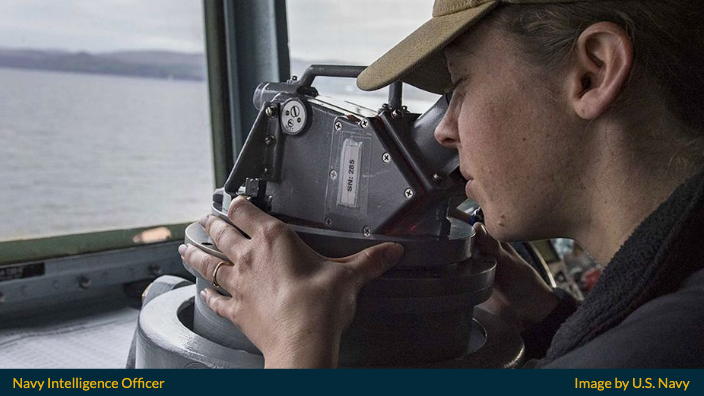
Intelligence Officers conduct comprehensive intelligence operations to get a comprehensive picture of opponent capabilities, intents, and actions in time and space; deliver timely, relevant, and predictive all-source assessments to construct tactical, operational, and strategic warfighting alternatives.
> Read more about the Intelligence Officer program
Cyber Warfare Engineering
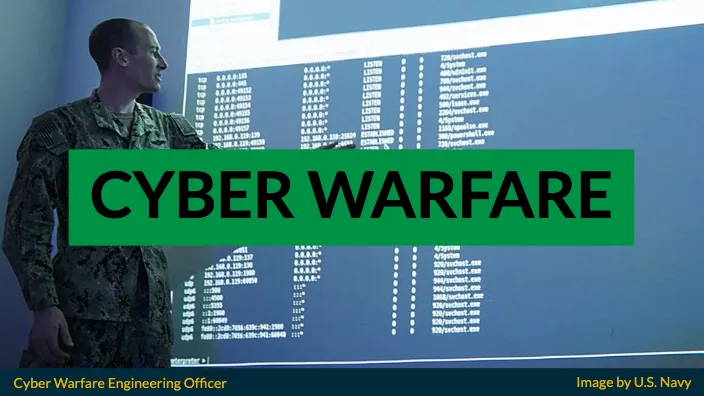
Officers of Cyber Warfare Engineering use computer science and computer/cyber engineering concepts and methodologies to research, design, develop, test, and evaluate software and firmware used in computer network assault, exploitation, and defense in cyberspace operations.
> Read more about the Cyber Warfare Engineering Officer program
Cryptologic Warfare
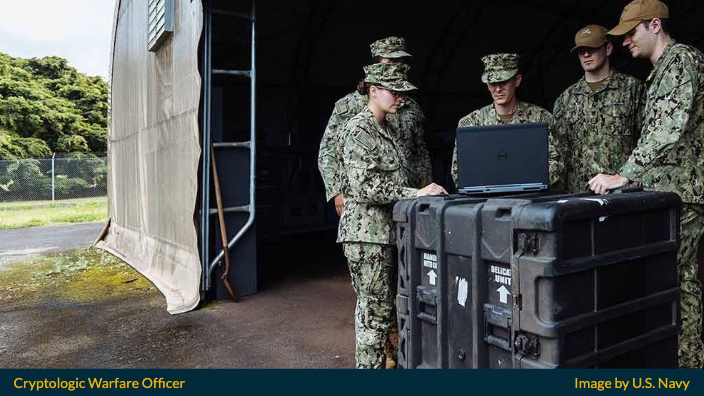
Assure freedom of action while attaining military goals in and via the electromagnetic spectrum, cyberspace, and space by providing knowledge in cryptology, space, signals intelligence, cyberspace operations, and electronic warfare.
> Read more about the Cryptologic Warfare Officer program
Navy Meteorology and Oceanography
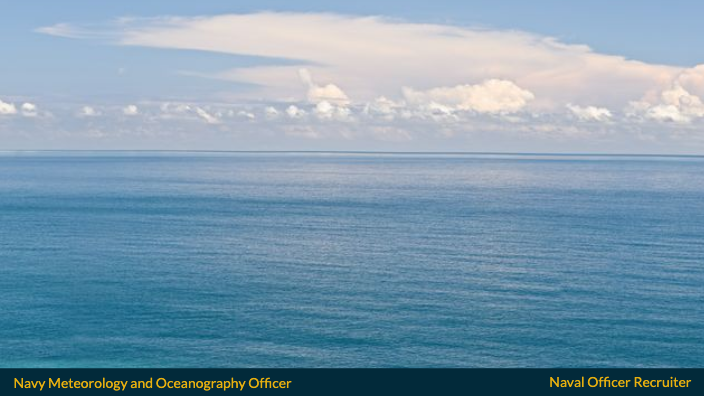
Collect, interpret, and use oceanic, meteorological, hydrographic, precise time, and astrometric data to assist Naval and Joint Force Commanders in operating safely and making better judgments quicker than their enemies.
> Read more about the Naval Meteorology and Oceanography Officer program
Information Warfare Officer Training
Those interested in becoming an Information Warfare Officer must attend Officer Candidate School (OCS) in Newport, Rhode Island.
They next undergo a 3-week Information Warfare Basic Course in Virginia Beach, VA, where they study the foundations of everything from electromagnetic theory to tactical cryptography to signal intelligence reporting.
Following that, IWOs are expected to seek higher education possibilities as part of their professional training throughout their careers.
IWO’s specialized training may result in possibilities for certification, credentialing, and licensing from a variety of national organizations and boards.
Apart from professional certifications and credentials, IWOs can continue their education through the Servicemembers Opportunity Colleges Navy Degree Program, by attending institutions such as the Naval War College or the Naval Postgraduate School, or by completing Joint Professional Military Education at any of the military service schools.
No doubt, postgraduate education is critical for people working as IWOs to succeed.
So, many IWOs will pursue a master’s degree in electrical engineering, cyber systems and operations, computer science, or space systems at the Naval Postgraduate School in Monterey, CA.
More Information
If you want more information about becoming a Navy Information Warfare Officer, the next logical step is to contact a Naval Officer Recruiter.
Let us start figuring out how you can benefit from becoming a Navy IWO – or if it is even the right career move for you.
You may also find these guides helpful:
Hope you found this helpful in your career planning.
